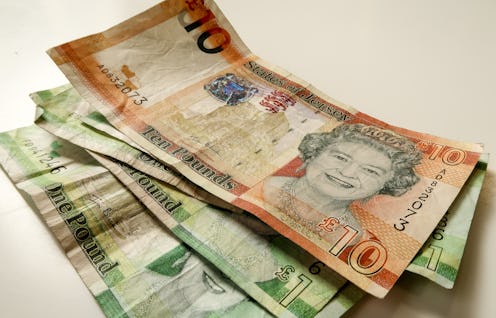Life
Are the Best Feminists High-Rollers?
When I was little, before I even knew what feminism was, I had two types of proto-feminist heroines. First, the members of the U.S. Women’s Soccer Team, who demonstrated, unequivocally, that the boys in my class who said girls were bad at sports were wrong. Second, Destiny’s Child, specifically because of their song “Independent Women,” which I proclaimed my anthem. Beyoncé, Kelly, and Michelle were the first to tell me that being an empowered woman meant paying your own way and then some; the ability to buy your boyfriend a car and yourself a closet full of designer shoes.
By the time I got to college, “Independent Women” had been musically reiterated in tracks by Neyo and others, but feminism meant something utterly different to me. It required a realization of my privilege, yes, but was not dependent on money (at least not more than was necessary to be self-reliant).
I’m sure you can guess what comes next. College had been like an air hangar. Sure, some of the jets were fancier than others, but we were all stuck in the same place. It wasn’t until I hit the runway that I realized I’d spent four years painting my plane orange, while others had been installing military-grade accessories. As a double humanities major, I could write a decent extended metaphor, but I had this creeping, consuming feeling that by not studying something more lucrative, I had really shot myself in the foot when it came to being a force for gender equality.
Two years out, I’ve definitely survived, but my business and STEM sisters have thrived, a fact that has lead me to ponder: By raking in the dough, are they doing more to actually equalize the male/female power dynamic in this country than my proselytizing about feminism will ever achieve? It’s a difficult question to ignore, especially when the “Influential Women” lists published by most media conglomerates feature moguls and entertainers — ladies who rake in the big bucks — almost exclusively.
Thinking like this, its easy to forget that the rights enjoyed by many women in this country — including the freedom to work outside the home and manage their own finances — were not purchased. They were fought for in word and action, through protest, conversation, education, and women’s cultivation of skills, abilities, and interests whether socially sanctioned or not. Feminism was, and still is, driven by so much more than the power of the purse. Furthermore, flexing significant coin as a woman, in and of itself, does not a feminist make. That power must be wielded more conscionably than in the past. Its dynamics must be questioned, and it cannot be used to otherize and oppress.
Money plays an undeniable role in female empowerment, and yet, it’s not everything. This is something I know is true, but I often have to remind myself in the face of cold, hard, cash.
